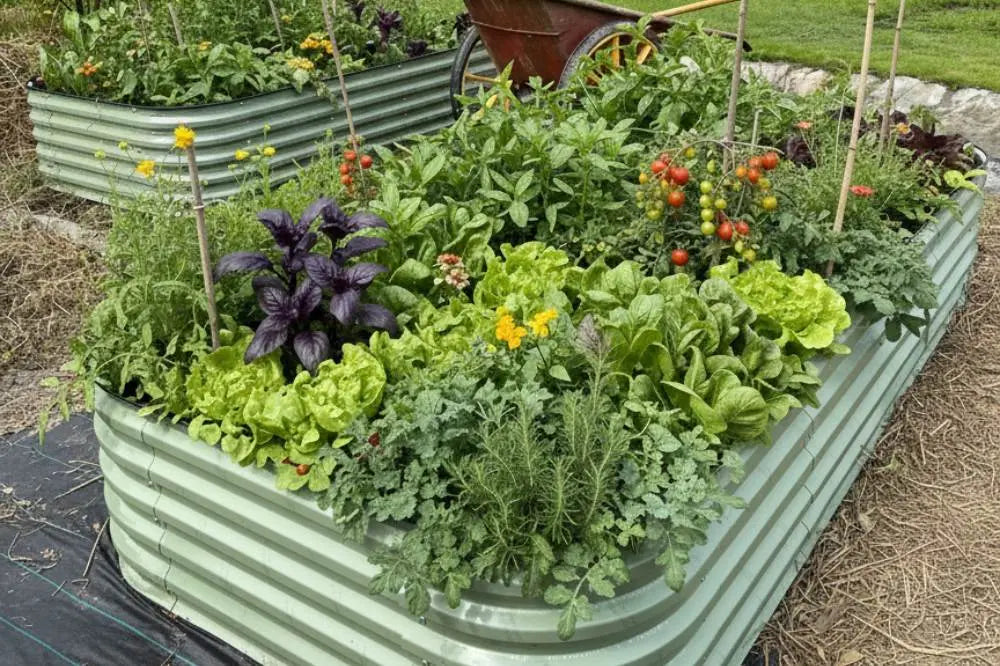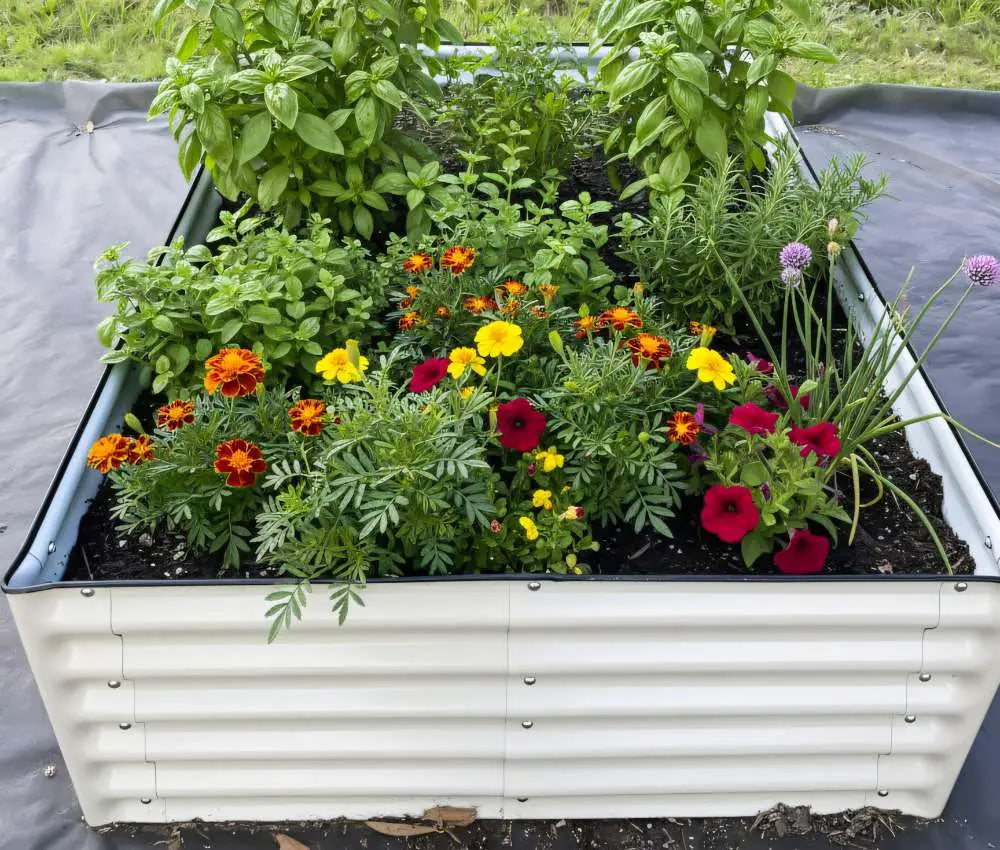Grow a Vegetable Garden in the Winter, Why Not?
By Louis Nguyen
Author bio: Louis Nguyen is an article writer. After a long time with the COVID-19 epidemic, he spent time researching and setting up his small garden.
TTraditionally, late fall is the time when families harvest and clean the garden. Because it is very difficult to maintain a vegetable garden in the winter in the US if you are not equipped with the appropriate knowledge. But, winter is the season when we need to consume the most food in order for our bodies to have enough energy. When winter comes, most of the vegetables in your garden will start to wilt. Because most vegetables need to be maintained at the right humidity and temperature for them to grow. Especially tropical vegetables. They will not survive when winter comes.
And for those who love to grow vegetables or like to use clean vegetables for the family, ending the planting season early would be very sad. That's why we've created this article to provide you with the knowledge you need to garden in the winter.

Choose to plant vegetables that can grow in the winter.
If plants love light and moisture, then, there are plants that love the shade and grow well in cold climates. Instead of going through the trouble of growing tropical vegetables in winter. You need to adjust the variety of vegetables in your garden to suit each season. Gardening will become much simpler.
But, winter crops are not as diverse as summer crops. But with a few tips to preserve vegetables in the fall, it is possible that your family will still have enough food for a long winter.
Winter weather is suitable for growing hardy vegetables. Such as broccoli, Brussels sprouts, cabbage, kale, leeks, and turnips. They are tolerant of cold, snow, darkness, and temperature changes; they are also resistant to pests and diseases. These vegetables will take several months to grow, so you can plant them in late spring or early summer. When winter comes, it's time to start harvesting.
Plants that need more care but can still be grown in the winter include mustard greens, parsnips, spinach, beans, and rockets. You can also grow carrots, onions, potatoes, beets, and winter squash. Because these crops have a shorter growing season, plant them in the middle or late summer to harvest in the winter.
An important note: winter crops will yield less and are also more susceptible to spoilage. So, to be able to provide enough food for your family, you should grow more vegetables. You should also divide the appropriate vegetable growing area for easy care when winter comes.
Also read: 6 Recommended Vegetables That Are Sweeter After Frosting in Garden Bed.
Preparing the soil for the vegetable garden in winter
Before beginning to prepare the soil for the winter garden, clear the garden in the middle or late autumn. After harvesting tropical vegetables in the garden. You start by inspecting the soil, removing pathogens, plowing the soil into the beds, and adding nutrients to the soil. This will both give you extra mulch to keep your plants warm and nourished in the winter and help you prepare the soil for the coming spring.
The best soil for growing vegetables in winter is one that can keep them well and still allow beneficial organisms to live in cold weather. The best way to do this is to use raised garden beds because they keep soil moisture and provide protection from cold winds. Use a thick layer of straw, wood chips, or dry leaves on the bed when it starts to get cold. They will keep the soil warm and prevent the plants from getting cold too quickly.
An important note is to add more nutrients to the soil in early fall to keep plants healthy throughout the fall. When the tree is stronger, it is also the time to enter winter, and the tree will easily withstand the cold.
Also read: Soil preparation guide for beginners.
Taking care of the vegetable garden in winter
The work of taking care of the vegetable garden in the winter will be less labor-intensive than in the rest of the seasons. Since you have prepared the plant during the fall and winter, it will grow slowly. But, there are still a few things you need to take care of to make sure your vegetable garden can harvest. Protect plants by adding mulch with old leaves, straw, sawdust, etc. To maintain moisture for plants and add nutrients for plants to grow.
Winter vegetables are resistant to cold weather, but most of them do not like changes in weather too much. They will leave your vegetable garden susceptible to rotting and damage. Once there, you can protect your vegetable garden by using garden fabrics or tarpaulins. But, they are only effective for a short time.
If you use mulch to protect your vegetable garden. You should pay attention to opening the cage door to release steam, adjust the temperature, and create ventilation for the plants.

Harvest the vegetable garden in winter
In winter, daylight hours decrease and cold temperatures slow down plant growth. So, the number of growing days for the crop will be longer in winter. When planning your vegetable garden harvest, consider this change. Or more simply, you can try to test by harvesting a little in advance. To see if they have reached maturity, you also have a source of clean vegetables to use gradually.
If they are mature, harvest and store them for use throughout the winter. To reduce the possibility of vegetables being damaged during the frost period.
Vegetables usually just need a cool, dry, and dark place to not rot. You just need to arrange vegetables in wooden boxes or hard cartons for storage. Root vegetables such as carrots, potatoes, and beets are best stored in moist sand. If you do not have sand, you can use straw, sawdust or coir instead.
Onions, garlic, and shallots need to be dried, then braided into a long rope and hung in a dry area for storage. You can also keep them by putting them in a mesh or cloth bag and hanging light bulbs to let them dry.
Summary
You can still harvest fresh vegetables in the garden in the winter, but you need to choose the right plants. Prepare essential pieces of knowledge and track your vegetable garden. We hope you have gained the knowledge you need to grow vegetables in winter.


